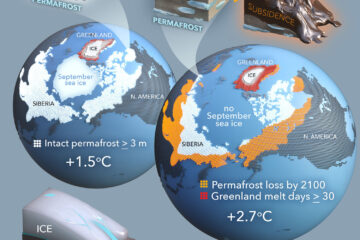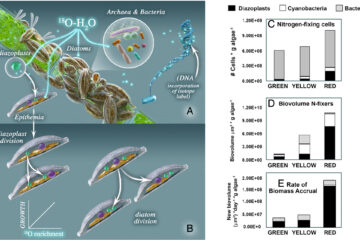Long-term impacts of warming drive decomposition and accelerate the turnover of labile, not recalcitrant, carbon
Warming is altering the way soils function in ecosystems both directly by changing microbial physiology and indirectly by causing shifts in microbial community composition. Some of these warming-driven changes are short term, but others may persist over time. Here, we took advantage of a long-term (14 yr) warming experiment in a tallgrass prairie to tease apart the influence of short- and long-term warming on litter decomposition. We collected soils originating from warmed and control plots and incubated them with a common litter substrate in a reciprocal design under elevated and ambient growth chamber temperatures. Litter decomposition was 40% higher in soils that were warmed in the field for 14 yr (long-term warming) relative to soils derived from ambient plots. Short-term warming in the laboratory had less of an impact on decomposition-decomposition increased by 12% under laboratory warming. Using a two-pool soil carbon model to explore how different carbon pools may be responding, we found that long-term warming accelerated the turnover of labile, not recalcitrant, carbon in these prairie soils-a result that is likely due to shifts in soil community activity/composition. Taken together, our results offer experimental evidence that warming-induced changes in the soil community that occur over 14 yr of warming have long-lasting effects on carbon turnover.


